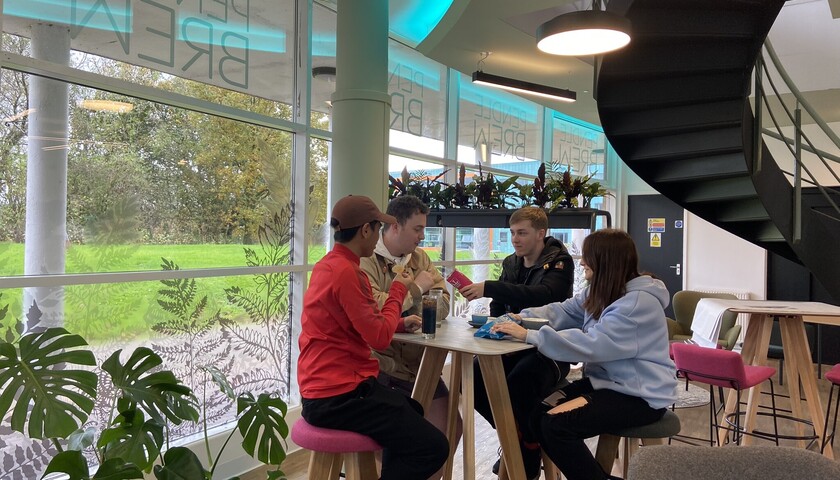Philosophy is the careful, reasoned engagement with fundamental questions about human existence, truth and knowledge, right and wrong, politics and justice, art, faith and reason. But you’ll do more than explore ideas with us. You’ll apply philosophy in real-world scenarios, examining philosophy’s role in addressing global, social and political challenges. Develop your skills in critical thinking and clarity of communication, and you can be confident of success in a very wide range of graduate roles.
Why Lancaster?
- Take the opportunity to engage in philosophy as an active practice, learning from philosophers who are actively involved in developing the research, ideas, and theory you will study
- Study a distinctive course that draws upon multiple philosophical traditions including, western, Indian, Chinese, and feminist thought
- Join a thriving community and take part in events organised by our Philosophical Society, including debates, essay competitions, and visits by guest speakers
- Gain valuable work experience with internship opportunities through the Richardson Institute for Peace Studies, known for its cutting-edge research
- Develop a strong portfolio of work, showcasing your philosophical reasoning skills, critical thinking skills and communicative abilities, valuable attributes that will open up a range of career prospects
Depth and breadth of philosophical knowledge
This course will provide you with rich and varied philosophical knowledge, through engaging with methodological and culturally diverse content across a broad range of topics. In your first year, you will study ethics, metaphysics, epistemology, history of philosophy, global philosophy, and political thought, developing strong foundational knowledge and confidence in key areas of the discipline.
In your second year, alongside core study in applied philosophy, you will choose subjects from amongst these and others to study in greater depth, developing a rich picture of key questions and debates in philosophy. Previous students have enjoyed:
- The philosophy of science
- Feminist philosophy
- Metaethics
- 19th century analytic philosophy
- Aesthetics
This depth of knowledge and study will prepare you for your final year of the programme, in which you will probe our specialist, cutting-edge research with topics that have ranged in the past from the ethics and politics of communication to philosophy of mental disorder, to the philosophy of war and conflict.
Understand philosophy’s impact on the world
Throughout your degree, you will consider philosophy’s relevance to and impact on the world, as philosophy is not something we exclusively learn about in the classroom. At Lancaster, our emphasis is on philosophy as a collective, ongoing, socially applicable practice and we foster a collaborative learning environment where ideas are shared and developed together.
Applied philosophy is central to our programme. Through exploration of specialist topics and contemporary debates you will tackle complex theoretical and practical issues, engage with important global social challenges, and develop critical reasoning and communication skills. Through multiple perspectives—including global traditions, feminist and critical thought, political philosophy, and the history of philosophy—you will explore philosophy’s relevance to social and political life.
Gain critical skills
Philosophy is both an activity and a body of knowledge—at Lancaster, we emphasise both. Through structured training and practice, you will develop critical thinking and logic skills essential for philosophical reasoning and practice and beyond.
Through lectures, seminars, and guided reasoning activities, you will discuss and critically engage with ideas and arguments. You will learn the basics of formal logic and how to apply it to philosophical analysis as well as be encouraged to consider when formal methods are useful, and when it makes sense to use other philosophical methods to analyse positions, ideas and texts.
In your second year, you will undertake a guided philosophy project, working independently and in a small group with structured staff guidance on a text, group of texts, or problem. This will culminate in a portfolio that demonstrates your skills and knowledge.
These experiences provide the foundation for your final year, where you will independently research a longer-form piece of writing or project, working closely with a member of staff with expertise in your chosen area, and take part in in-depth discussion-based workshops with your peers and lecturers. You will draw on your ability to critically question philosophical practices and build on your communication skills to effectively analyse important philosophical questions within your work.










